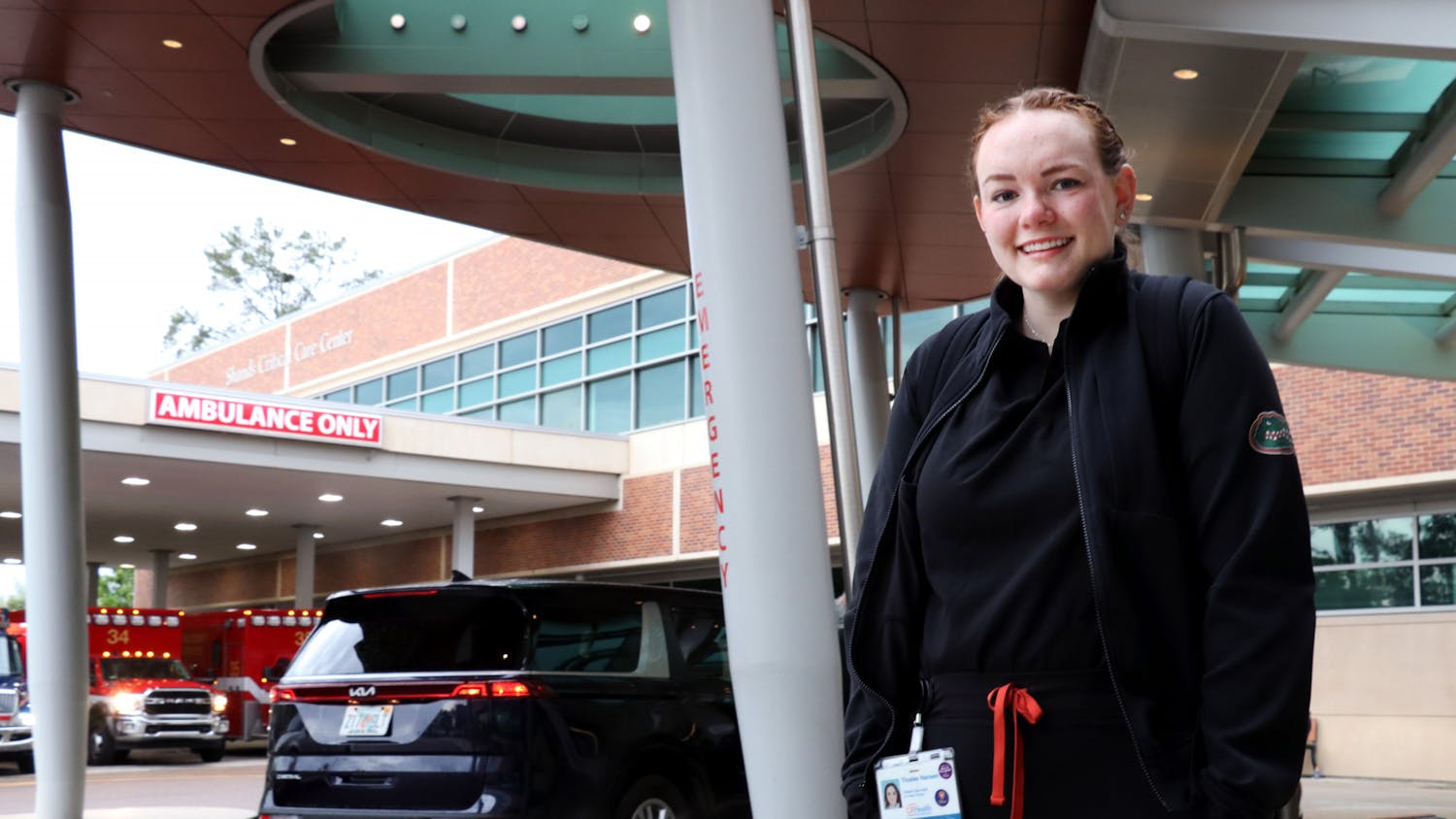UF Health had a medical breakthrough by using a combination of therapies for the first time to treat a rare oral tumor.
Anthony Woods of St. Petersburg, Florida, was diagnosed as a child with a tumor known as ameloblastoma, which can cause jaw and face abnormalities. Woods was the first patient to receive the treatment, which targeted a specific gene mutation, according to a press release.
He was treated by Dr. Frederic J. Kaye, medical co-director of the Thoracic Oncology Program and co-director of the UF Health Lung Cancer Center.
The treatment comes in the form of a daily pill that attacks the specific mutated gene, Kaye said. It contains two drugs: Dabrafenib and Trametinib.
Dabrafenib is a small molecule that specifically binds and blocks the mutated gene, which promotes cancer-cell growth. Trametinib is another small molecule that binds and blocks a growth pathway. Kaye said he hopes using dual treatments will enhance efficiency and minimize side effects.
The treatment isn’t a standard recommendation for someone with stage four ameloblastoma, but after studying the mutation, Kaye determined the combination of the two drugs could yield positive results.
Dr. William M. Mendenhall, a radiation oncologist at the UF Health Cancer Center specializing in head and neck cancers, previously treated Woods, meeting him after his first radiation treatment about seven years ago, according to the press release. The treatment has considerably reduced the size of the tumors in Woods’ neck and head, Mendenhall said.
“It was actually Dr. Kaye’s idea to try this type of chemotherapy, and a good move in his part,” Mendenhall said. “It is nice to see the treatment working.”
The pill hasn’t been approved by the Food and Drug Administration yet for this specific disease, so extensive paperwork had to be done before the doctors could proceed, according to the press release. The next step is to create clinical trials of the treatment to get it approved for future use.
“There is a lot of excitement about the results … we are in the right direction, but these are still difficult diseases to cure,” Kaye said. “We need to have more creativity in the coming years.”
The full results were published in the January issue of the Journal of the National Cancer Institute.
[A version of this story ran on page 8 on 2/17/2015 under the headline “UF Health develops new tumor treatment"]





